Understanding your Sick Dog's Needs
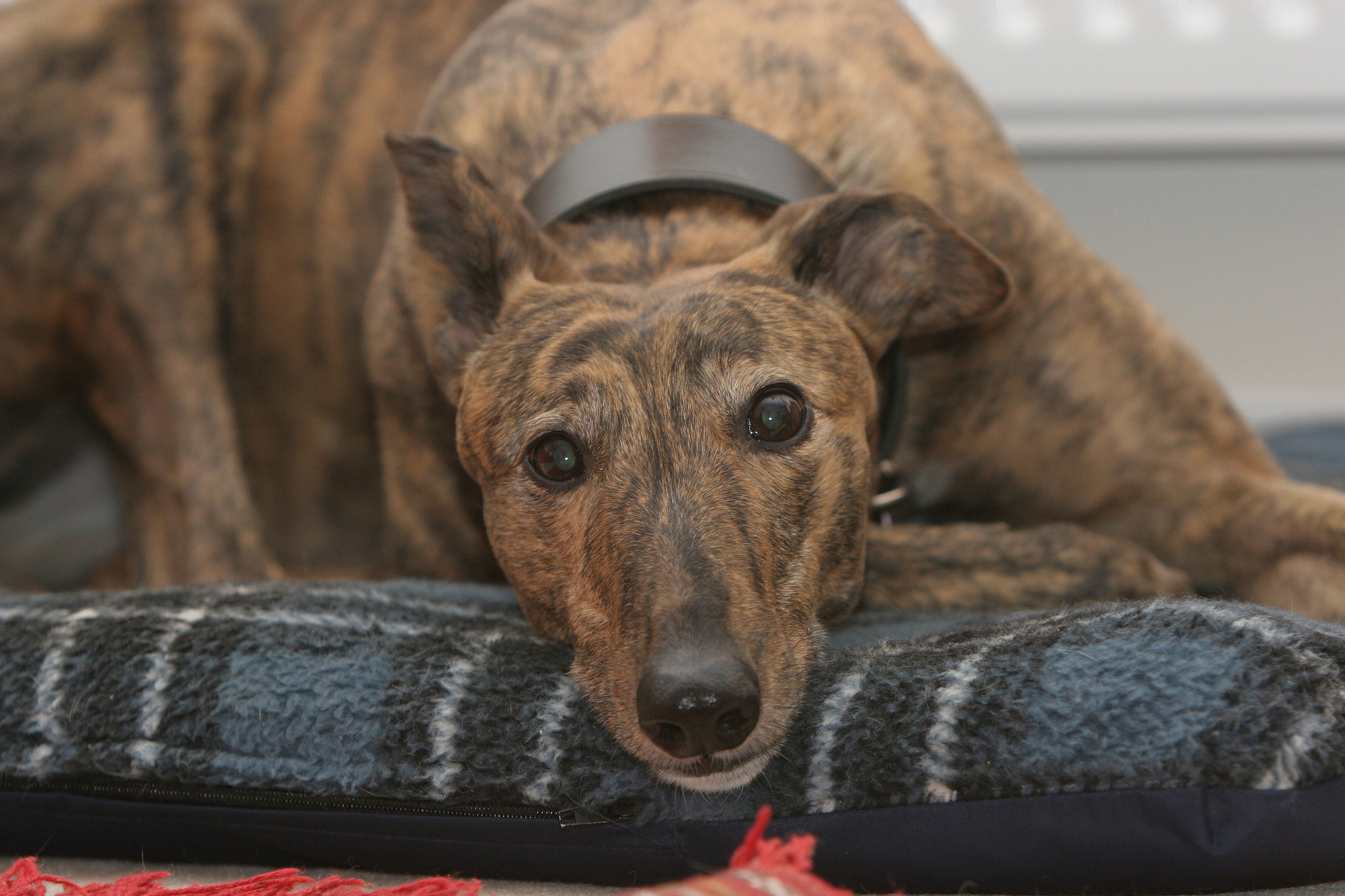
When your beloved furry companion is not feeling well, it is crucial to understand their needs in order to provide proper care. Your sick dog may exhibit changes in behavior, appetite, or energy levels. It is important to closely observe these signs and offer support accordingly. Some dogs may prefer solitude while others seek more attention and reassurance during illness. By closely monitoring their behavior and body language, you can gain valuable insight into their emotional and physical needs. Additionally, providing a comforting environment, maintaining a proper diet, administering medications as prescribed by the veterinarian, and offering emotional support are all essential aspects of caring for a sick dog at home. Remember that each dog is unique, so being attentive and responsive to your pet's individual needs is key to helping them recover smoothly.
A Signs and Symptoms of a Sick Dog

When caring for a sick dog, it is crucial to be able to recognize the signs and symptoms of illness. While dogs may not be able to communicate their discomfort verbally, they often show physical and behavioral changes that can indicate an underlying health problem. Some common signs of a sick dog include loss of appetite, lethargy, vomiting, diarrhea, coughing, sneezing, excessive thirst or urination, fever, weight loss, and changes in their coat or skin condition. Additionally, dogs may display behavioral changes such as restlessness, aggression, anxiety, or withdrawal. It is important for pet owners to closely monitor their dog's behavior and seek veterinary care if any concerning symptoms arise. Early detection and intervention can greatly improve the chances of a successful recovery for your furry friend.
B Identifying Common Illnesses in Dogs
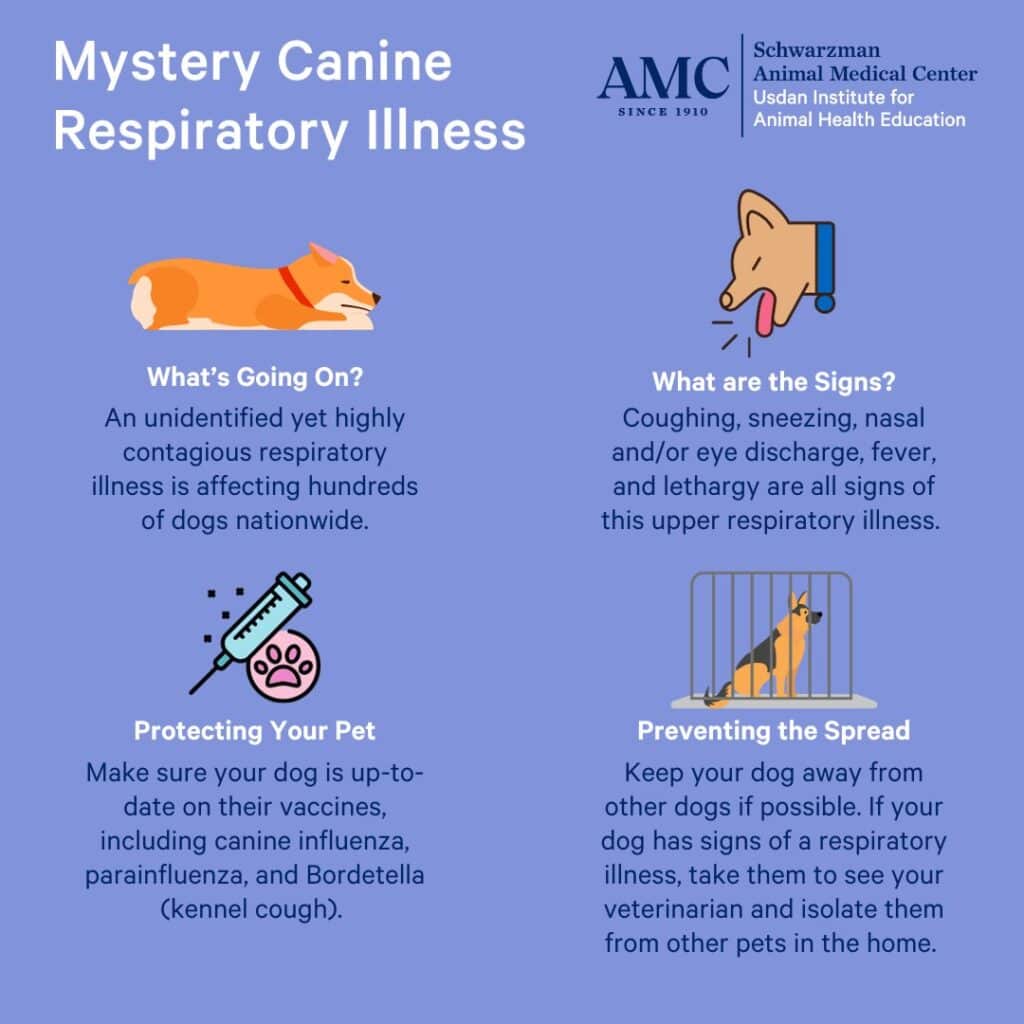
Identifying common illnesses in dogs is crucial for providing appropriate care and prompt treatment. Being aware of the signs and symptoms can help you recognize when your dog is not feeling well. Some common illnesses in dogs include respiratory infections, gastrointestinal problems, skin issues, and urinary tract infections.
Respiratory infections may manifest as coughing, sneezing, nasal discharge, and difficulty breathing. Gastrointestinal problems can cause vomiting, diarrhea, loss of appetite, and weight loss. Skin issues may present as itchiness, redness, hair loss, or sores. Urinary tract infections often result in frequent urination, accidents indoors, and blood in the urine.
If you notice any of these symptoms or your dog is exhibiting abnormal behavior, it is recommended to consult with a veterinarian. Early detection and treatment can improve the chances of a full recovery for your sick dog. Monitoring your dog's health and seeking veterinary care when needed will help ensure their well-being.
Creating a Comfortable Environment for your Sick Dog

When a dog is sick, it's important to provide them with a comfortable environment that promotes healing and relaxation. First and foremost, designate a quiet and warm space in your home where your sick dog can rest undisturbed. This area should be free from noise and drafts to help them feel safe and secure.
Next, make sure to provide adequate bedding for your furry friend. A soft, supportive bed or mat will help alleviate any discomfort they may be experiencing. Consider adding cozy blankets or pillows to make the space even more inviting.
Maintaining cleanliness in your dog's environment is crucial for their recovery. Regularly clean their bedding and surrounding area to prevent the spread of germs and bacteria. This will also help keep unpleasant odors at bay.
Lastly, ensure that your sick dog has access to fresh water at all times. Hydration is key in supporting their immune system and overall health.
By creating a comfortable environment for your sick dog, you are not only providing physical comfort but also emotional support during their healing process.
A Designating a Quiet and Warm Space

When caring for a sick dog at home, it is important to designate a quiet and warm space where they can rest and recover comfortably. Choose an area in your home that is away from noise and activity, as this will help reduce stress and promote healing. Make sure the space is well-insulated and free from drafts, as sick dogs are more susceptible to temperature fluctuations. You can place a cozy bed or blanket in the designated area to provide extra comfort. Additionally, consider using a heat pad or a heated pet bed to maintain a warm environment for your furry friend. By providing a quiet and warm space, you are creating an ideal environment for your sick dog to rest and recuperate.
B Providing Adequate Bedding and Resting Area

When caring for a sick dog at home, it's important to create a comfortable environment that facilitates rest and recovery. One key aspect is providing adequate bedding and a resting area for your furry friend.
Choose a soft and supportive bed that can accommodate the size of your dog, allowing them to stretch out comfortably. This will help alleviate any discomfort caused by illness. Opt for materials that are easy to clean and hypoallergenic, as this can prevent any further irritation or allergies.
Additionally, consider the location of the resting area. Find a quiet spot in your home where your dog can relax undisturbed. Ensure that the area is warm, as maintaining proper body temperature is crucial for their recovery.
By providing appropriate bedding and creating a comfortable resting area, you can help your sick dog feel secure and promote faster healing.
Maintaining a Proper Diet for your Sick Dog

Maintaining a proper diet is crucial for the overall health and recovery of a sick dog. When a dog is unwell, their body needs all the nutrients it can get to fight off infections and heal. It's important to consult with your veterinarian to determine the best diet plan for your sick dog based on their specific condition.
In general, a high-quality and easily digestible diet is recommended for sick dogs. This may include specialized veterinary prescription diets that are formulated to meet the nutritional needs of dogs with specific health issues. These diets are designed to provide the necessary nutrients while being gentle on the dog's digestive system.
It is also essential to ensure that your sick dog is adequately hydrated. Offer fresh water at all times and monitor their water intake to ensure they are drinking enough.
Additionally, it's important to monitor your dog's appetite closely. If they seem to have a reduced or loss of appetite, you can try offering smaller, more frequent meals or adding appetizing toppings like chicken broth or low-sodium gravy to entice them to eat.
Remember, every dog's nutritional needs may vary, so it's crucial to follow the guidance of your veterinarian when it comes to maintaining a proper diet for your sick dog. They can provide specific recommendations based on your dog's condition and overall health.
A The Importance of Proper Nutrition
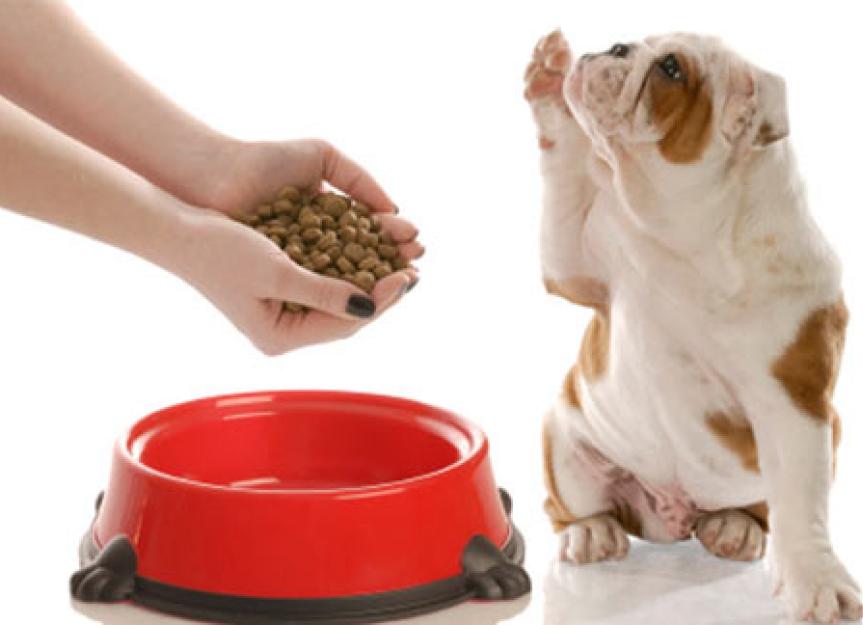
Proper nutrition is crucial for a sick dog, as it plays a vital role in their overall health and well-being. When a dog is unwell, their body needs additional nutrients to support the healing process and boost their immune system. Providing a balanced diet that includes high-quality protein, essential vitamins and minerals, and healthy fats can help strengthen their immune system and aid in recovery.
Nutrition also plays a key role in managing certain health conditions. For example, dogs with gastrointestinal issues may benefit from easily digestible food or a prescription diet recommended by their veterinarian. Similarly, dogs with kidney or heart disease may require special diets that are low in sodium or phosphorus.
It's important to consult with your veterinarian to determine the specific nutritional needs of your sick dog. They can recommend appropriate dietary changes and monitor your dog's progress to ensure they're receiving the best nutrition for their condition.
B Feeding Tips for a Sick Dog

When caring for a sick dog, it's important to take extra precautions when it comes to their diet. Here are some feeding tips to ensure your furry friend gets the nutrition they need:
- Offer small, frequent meals: Instead of giving your dog one large meal, divide their daily food intake into smaller portions throughout the day. This helps prevent digestive issues and ensures they can easily digest and absorb nutrients.
- Serve easily digestible foods: Opt for bland foods such as boiled chicken, rice, or plain cooked pumpkin. These can be gentle on your dog's stomach and help alleviate any gastrointestinal discomfort.
- Ensure proper hydration: Sick dogs may have a reduced appetite and be at risk of dehydration. Make sure they have access to fresh water at all times. Additionally, you can try offering them low-sodium chicken broth or water with electrolytes to encourage drinking.
- Avoid rich or fatty foods: Foods high in fat can be harder to digest and may exacerbate symptoms in a sick dog. Stick to easily digestible and low-fat options for their meals.
- Consider dietary supplements: In consultation with your veterinarian, you may want to explore adding supplements such as probiotics or digestive enzymes to support your dog's overall health and immune system.
Remember, always consult with your veterinarian before making any changes to your dog's diet, especially if they have an underlying health condition or are on medication that may interact with certain foods. Proper nutrition is essential for their recovery and well-being.
Administering Medications and Treatments to your Sick Dog

Administering medications and treatments to your sick dog is a critical part of their care. It is essential to understand the medication instructions provided by your veterinarian and follow them carefully. These instructions may include dosage, frequency, and method of administration. Some medications may need to be given with food, while others should be given on an empty stomach.
To make the process easier for both you and your dog, it can be helpful to establish a routine for medication administration. This could include using treats or rewards to encourage cooperation. If your dog requires injections, it's important to learn the proper technique from your veterinarian.
In addition to medications, treatments such as wound dressings or physical therapy may also be necessary. It's crucial to follow any instructions provided by the veterinarian or veterinary technician regarding these treatments. Regular monitoring of progress and reporting any concerns or adverse reactions to the vet is essential to ensure effective treatment for your sick dog.
A Understanding Medication Instructions

When caring for a sick dog at home, it is crucial to understand the medication instructions provided by your veterinarian. These instructions are specific to your dog's condition and will guide you on how to administer the medications correctly.
Firstly, carefully read and follow the dosage guidelines. Pay attention to whether the medication should be given with or without food. Some medications may require splitting pills or mixing them with food for easier administration.
Secondly, be aware of any potential side effects or interactions the medication may have. If you notice any concerning symptoms after starting a new medication, consult your veterinarian immediately.
Lastly, follow the recommended schedule strictly. Stick to the prescribed times and intervals for administering the medication. This will ensure that your dog receives the necessary dose at the right time for optimal effectiveness. By understanding and following medication instructions, you can help promote your sick dog's recovery and well-being.
B Tips for Administering Medications to a Dog

Administering medications to a sick dog can be challenging, but with the right approach and some helpful tips, it can become easier. First and foremost, it's crucial to carefully read and understand the medication instructions provided by your veterinarian. Make sure you know the correct dosage and frequency of administration.
One helpful tip is to disguise the medication by hiding it in a treat or mixing it with their food. However, always check with your vet first to ensure that the medication can safely be given with food. Another useful technique is to use a pill dispenser or pill pocket specially designed for dogs, which makes swallowing easier.
For liquid medications, you can use an oral syringe or dropper to accurately measure and administer the medication into your dog's mouth. It's important to hold your dog's mouth closed gently after giving them the medication and encourage them to swallow.
If your dog is particularly resistant or fearful of taking their medication, you may need to seek assistance from another person who can help hold your dog while you administer the medication. It's essential to stay calm and patient during this process and reward your dog with praise or a treat afterward for their cooperation.
Remember, never force medication down your dog's throat as this can cause them distress and make future administrations even more challenging. If you're having difficulty administering medications, consult with your veterinarian for alternative options or techniques that may be more suitable for your specific situation.
Hygiene and Grooming for a Sick Dog
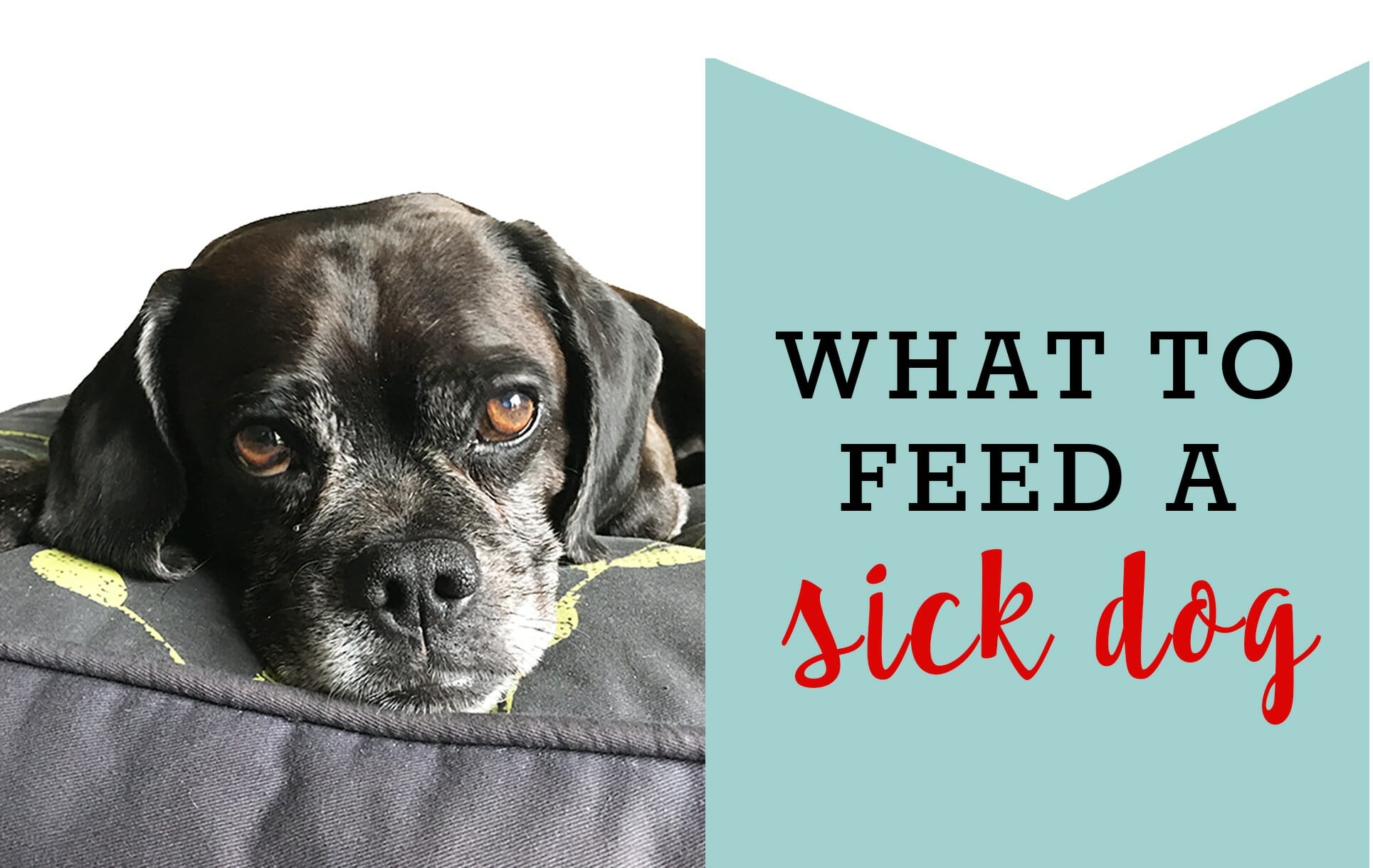
Maintaining proper hygiene and grooming for a sick dog is crucial for their comfort and overall well-being. First, let's focus on bathing and brushing. A sick dog may not have the energy to groom themselves, so regular bathing is essential to keep their coat clean and free from dirt or parasites. However, it's important to use a gentle, hypoallergenic shampoo formulated specifically for dogs with sensitive skin. When brushing their fur, opt for a soft-bristle brush to prevent any discomfort or irritation.
Additionally, managing accidents and incontinence is another important aspect of hygiene for a sick dog. Keep absorbent pads or diapers on hand to prevent messes and quickly clean up any accidents. Regularly cleaning your dog's living area and bedding is also necessary to maintain a clean environment.
By prioritizing hygiene and grooming, you can ensure that your sick dog remains comfortable and hygienic throughout their recovery process.
A Bathing and Brushing Tips
Bathing and brushing your sick dog requires extra care and consideration. When it comes to bathing, it's important to use a mild and hypoallergenic shampoo specifically formulated for dogs. Make sure to choose a time when your dog is feeling relatively comfortable and calm.
Before bathing, brush your dog gently to remove any tangles or mats. Use a soft-bristled brush or a comb designed for your dog's coat type. Be extra gentle with any sore or sensitive areas.
When bathing, fill the tub with warm water that is comfortable for your dog. Support your dog in the tub and slowly wet their body, avoiding their face if possible. Apply the shampoo and gently massage it into their coat, being careful not to cause any discomfort.
After rinsing thoroughly, use a soft towel to dry your dog's fur. Avoid using a hairdryer as it may be too hot or noisy for them at this time.
Brushing your sick dog regularly helps keep their coat clean and free from mats. Use the appropriate brush for their specific coat type and be mindful of any discomfort they may experience.
By following these bathing and brushing tips, you can help keep your sick dog clean and comfortable during their recovery period
B Managing Accidents and Incontinence

When caring for a sick dog at home, accidents and incontinence can be common issues to address. It's important to understand that during illness, a dog's bladder control may be affected, leading to accidents in the house. To manage accidents and incontinence, there are a few steps you can take.
Firstly, consider using puppy pads or waterproof bedding in the designated resting area of your sick dog. This will help protect against any messes and make cleaning up easier. Additionally, establish a consistent schedule for bathroom breaks and take your dog outside frequently to relieve themselves.
If accidents do happen, it's crucial to clean them up promptly using pet-safe cleaners to eliminate any lingering odors. This will discourage your sick dog from re-marking the same spot.
Finally, be patient with your sick dog and provide positive reinforcement when they successfully use the designated bathroom area. With time and consistency, accidents and incontinence can be managed effectively during your dog's recovery.
Providing Emotional Support to a Sick Dog

When a dog is sick, they not only require physical care but also emotional support. Dogs can experience stress and anxiety when they are unwell, and it is important for their owners to provide comfort and reassurance during this time. One way to provide emotional support is by recognizing the signs of stress or anxiety in your dog, such as increased panting, pacing, or whining. Once you identify these signs, you can take steps to alleviate their distress. Spending quality time with your sick dog, offering gentle affection, and engaging in activities that they enjoy can help them feel more secure and loved. In addition, creating a calm and quiet environment can also contribute to their emotional well-being. By providing emotional support, you can help your sick dog feel safe and comforted throughout their recovery process.
A Recognizing Signs of Stress and Anxiety

Recognizing signs of stress and anxiety in a sick dog is crucial for providing appropriate care and support. Dogs, like humans, can experience heightened levels of stress when they are unwell.
Common signs of stress and anxiety include excessive panting, restlessness, pacing, trembling, decreased or increased appetite, sudden changes in behavior, aggression, excessive licking or chewing, dilated pupils, and hiding. Additionally, some dogs may display signs of separation anxiety when they are feeling unwell.
It is essential to observe your sick dog closely and look for these signs. By recognizing these indicators of stress and anxiety, you can adjust their environment and provide additional comfort to alleviate their distress. Remember to consult with a veterinarian if these signs persist or worsen.
B Ways to Comfort and Bond with your Sick Dog

When caring for a sick dog, it is essential to provide not only physical care but also emotional support. Bonding with your furry friend can help alleviate their stress and make them feel loved and secure during their illness. One way to comfort your sick dog is by spending quality time with them. Sit by their side, speak to them in a soothing tone, and gently stroke their fur. This physical contact can provide comfort and reassurance. Additionally, engaging in gentle activities such as slow walks or interactive play sessions can help strengthen your bond while also providing light exercise. Remember, your presence and affection can go a long way in helping your sick dog feel better emotionally during this challenging time.
Exercise and Physical Activity for a Sick Dog

When caring for a sick dog, it is important to modify their exercise routine to accommodate their illness and prevent any further discomfort. While rest is crucial for recovery, some light physical activity can be beneficial for their overall well-being. Consult with your veterinarian to determine the appropriate level and type of exercise for your sick dog. It may involve short, supervised walks or gentle play sessions indoors. Physical therapy exercises can also be recommended to help improve mobility and strengthen muscles. Always monitor your dog's energy levels and stop any activity if they show signs of fatigue or strain. Remember, the goal is to provide gentle movement that supports their healing process without causing additional stress or pain.
A Adjusting Exercise Routine for a Sick Dog

When caring for a sick dog, it is important to adjust their exercise routine accordingly. While regular exercise is crucial for a dog's overall health, a sick dog may not have the same energy or ability as before. It is essential to consult with your veterinarian before engaging in any physical activity with your sick dog.
Depending on the illness or condition, your vet may recommend limiting exercise or providing specific exercises for rehabilitation purposes. Short, gentle walks or light play sessions can help maintain muscle tone and prevent stiffness. It is crucial to monitor your dog closely during exercise and stop immediately if they show signs of exhaustion, discomfort, or pain.
Remember, the goal of exercise for a sick dog is to promote healing and prevent further strain on their body. Always follow your veterinarian's advice and make adjustments as necessary to ensure your furry friend's well-being.
B Physical Therapy Exercises for a Sick Dog
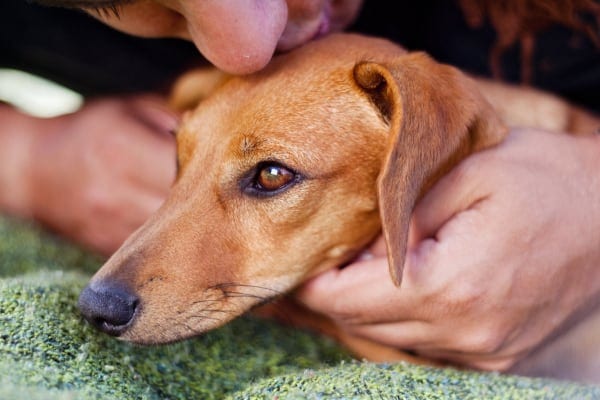
Physical therapy exercises can be beneficial for a sick dog in aiding their recovery and improving their overall wellbeing. These exercises are designed to strengthen muscles, improve flexibility, and restore mobility. One common exercise is passive range of motion, where the caregiver gently moves the dog's limbs through a full range of motion. This helps prevent muscle stiffness and promotes joint health. Another exercise is water therapy, which involves controlled swimming or walking in a pool. The buoyancy of water reduces stress on the joints and allows for low-impact exercise. Balance exercises, such as standing on unstable surfaces, can also help improve coordination and stability. It is important to consult with a veterinarian or veterinary therapist to determine the appropriate physical therapy exercises for your sick dog's condition.
Consulting with a Veterinarian for your Sick Dog

When your dog is sick, it's important to seek professional help from a veterinarian. They have the expertise and knowledge to diagnose and treat your furry friend's condition effectively. Consulting with a veterinarian is crucial in ensuring the well-being of your sick dog.
When deciding to consult a veterinarian, pay attention to certain signs such as an ongoing or worsening illness, persistent vomiting or diarrhea, changes in appetite or behavior, difficulty breathing, or any other abnormal symptoms. These could indicate a more serious underlying problem that requires immediate medical attention.
During the consultation, be prepared with relevant information about your dog's symptoms and medical history. This will help the veterinarian make an accurate diagnosis and come up with an appropriate treatment plan. Don't hesitate to ask questions about your dog's condition, treatment options, potential side effects, and any necessary follow-up care.
Remember that veterinarians are there to provide the best care possible for your sick dog. By consulting with them, you can ensure that your dog receives proper medical attention and increases their chances of a full recovery.
A When to Seek Veterinary Care

When caring for a sick dog at home, it's important to know when it's necessary to seek veterinary care. While minor illnesses or injuries can often be managed at home, there are certain situations that require professional assistance. If your dog is experiencing severe symptoms such as difficulty breathing, persistent vomiting or diarrhea, sudden weight loss, or extreme lethargy, it's crucial to consult with a veterinarian. Additionally, if your dog has been exhibiting symptoms for an extended period of time without any improvement, it's best to seek professional advice. Any signs of injury such as bleeding, limping, or swelling also warrant a visit to the vet. Remember that your veterinarian is the best resource for evaluating your dog's condition and providing the appropriate treatment.
B Questions to Ask Your Veterinarian

When caring for a sick dog at home, it's important to have open communication with your veterinarian. They are the best resource for information and guidance during this time. Before leaving the vet's office, be sure to ask any questions you may have about your dog's condition or treatment plan. Some important questions to consider asking include:
- What is the exact diagnosis? Understanding your dog's specific illness will help you provide better care at home.
- What are the treatment options available? It's essential to know what treatment methods are recommended and their potential side effects.
- How should I administer medications and treatments? Make sure you fully understand the proper dosage, frequency, and method of administering medications.
- Are there any dietary restrictions or recommendations? Your vet can guide you on what foods are best for your dog's recovery.
- What symptoms should I watch for that may indicate a worsening condition? Knowing what signs to look out for can help you seek immediate veterinary care if necessary.
Remember, your veterinarian is there to support and guide you through your dog's illness. Don't hesitate to reach out with any concerns or questions that arise during your dog's recovery process.
Conclusion

In conclusion, caring for a sick dog at home requires understanding their needs, identifying signs of illness, creating a comfortable environment, maintaining a proper diet, administering medications and treatments, practicing good hygiene and grooming, providing emotional support, adjusting exercise routines, consulting with a veterinarian when necessary, and taking preventative measures to keep dogs healthy. It is essential to monitor their symptoms closely and seek veterinary care if needed. By following these tips and providing the necessary care and attention, you can help your sick dog recover in the comfort of their own home. Remember to consult with your veterinarian for specific advice tailored to your dog's condition. Additionally, there are various resources available online and within your local community that can provide additional information and support throughout the process of caring for a sick dog.
A Tips for Preventing Illness in Dogs

Preventing illness in dogs is crucial for their overall well-being. Here are some helpful tips to keep your furry friend healthy and happy:
- Regular Vet Check-ups: Schedule routine visits to the veterinarian to ensure your dog receives necessary vaccinations and preventive medications.
- Balanced Diet: Provide your dog with a balanced and nutritious diet, tailored to their specific needs. Consult with your vet for guidance on appropriate food choices.
- Proper Hygiene: Regularly groom your dog by brushing their fur, cleaning their ears, and trimming their nails. Additionally, practice proper dental care by brushing their teeth regularly.
- Regular Exercise: Engage your dog in physical activities that suit their age and breed. Regular exercise helps maintain a healthy weight and promotes good overall health.
- Avoid Harmful Substances: Keep harmful household items, toxic plants, and certain foods (such as chocolate, grapes, or onions) out of your dog's reach.
- Maintain a Clean Environment: Ensure your dog's living space is clean and sanitized to prevent the spread of bacteria or parasites.
By following these preventive measures, you can significantly reduce the risk of illness in your beloved canine companion. Remember to consult with your veterinarian for additional advice specific to your dog's needs.
B Resources for Additional Information and Support

Finding reliable information and support for caring for a sick dog is crucial. Thankfully, there are several resources available to assist dog owners during this challenging time.
One valuable resource is the American Veterinary Medical Association (AVMA) website, which provides a wealth of information on various dog illnesses, medications, and treatment options. The AVMA also offers a directory of veterinarians across the United States, making it easy to find a trusted professional in your area.
Online forums and support groups specifically for dog owners dealing with sick pets can also provide guidance and emotional support. These platforms allow individuals to share their experiences, seek advice from others facing similar situations, and find comfort in knowing they are not alone.
Additionally, speaking with your veterinarian directly is essential for obtaining accurate information tailored to your dog's specific needs. They can provide valuable insights into caring for your sick dog and address any concerns or questions you may have.
Remember, when seeking additional information or support, it is important to rely on reputable sources that prioritize the well-being of your furry friend.




0 Comments